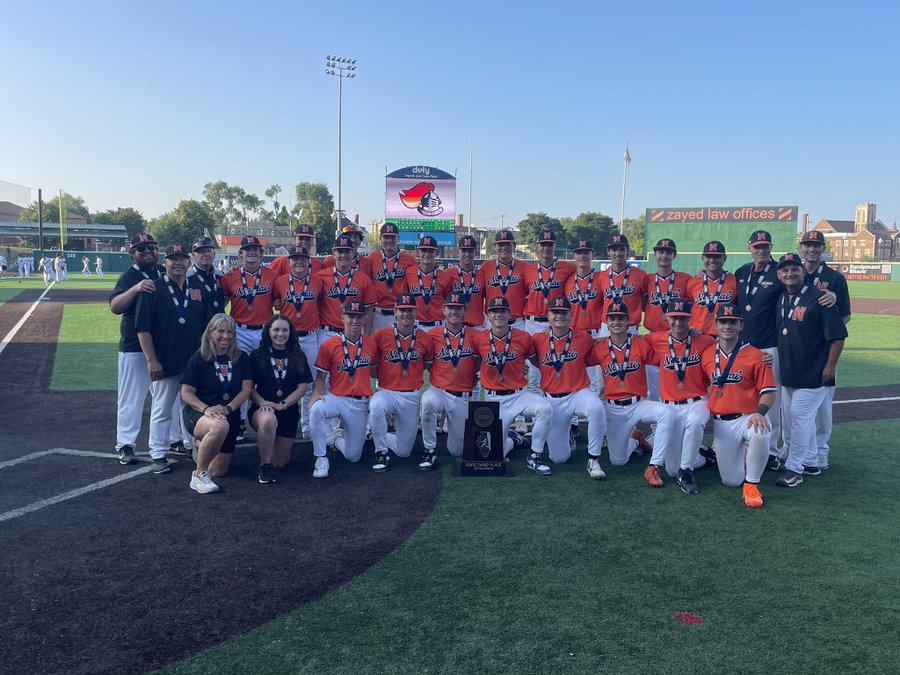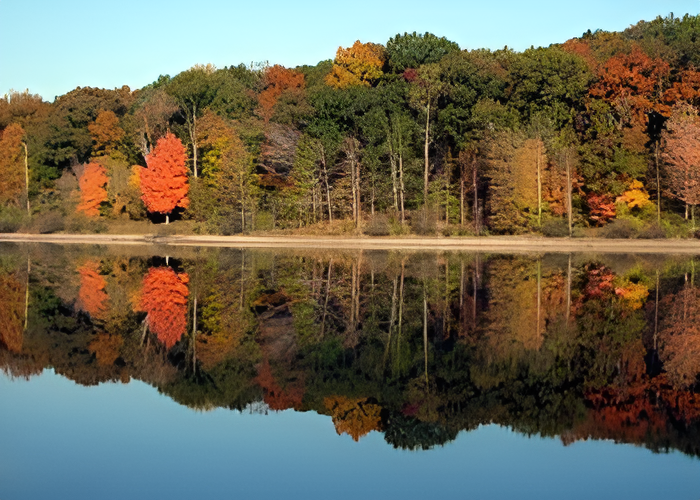America’s national parks and forests, long viewed as a national treasure, are far more than havens for bird watching, hiking, mountain climbing and sightseeing—they are critical to climate regulation and biodiversity.
The U.S. national park system now spans more than 273 million acres, including 433 national park sites national park sites and 154 national forests, a legacy that began when President Ulysses S. Grant protected the first federal land in 1872.
Unlike national parks, which are protected mainly for their natural beauty and public enjoyment, national forests have always been managed for multiple uses—including logging, mining and recreation. While logging in national forests isn’t new, a sweeping executive order issued March 1 makes it much easier to cut down trees on these lands.
The order removes key environmental safeguards from 112.6 million acres—nearly 59% of the nation’s federally protected forests. It weakens the ability of environmental agencies and communities to challenge logging projects, especially in areas where wildlife or water sources could be at risk, and calls for a significant increase in timber production in these areas.
That shift has raised alarms for two of Community’s science teachers.
While the Trump administration argues that expanded logging will reduce wildfire risk, control disease and bolster overall forest health, Environmental club sponsor and science teacher Mr. Mike Roller calls the fire control argument “specious”—plausible, but glaringly false.
“It seems like a reasonable argument,” Roller said, “until you get into it and you realize, ‘no, that doesn’t actually work.’”
Skeptical, Roller examined scientific research on wildfire prevention—and found little support for the administration’s position.
“It’s not true that this is going to help reduce wildfires,” he said. “I trust the experts—people who’ve studied forests their entire careers, people with degrees in this—and they’re saying, ‘No, it is not actually going to positively impact wildfires.’”
Instead, Roller warned, large-scale deforestation will likely intensify the very problems it claims to solve.
“Trees are one of our main defenses against climate change,” he said. “They literally breathe in carbon dioxide.”
The removal of forestland, Roller said, weakens the planet’s ability to absorb carbon emissions—an especially alarming prospect when compounded with losses in places like the Amazon Rainforest.
“You look at what’s happening in the Amazon, that’s one of our largest forests still intact,” he said. “Now we’re reducing the Earth’s capacity to handle the increasing amounts of CO₂ we put into it.”
Logging’s damage extends beyond tree loss. Heavy machinery compacts soil and accelerates erosion, further degrading ecosystems, Roller said.
“Everything is interconnected,” Roller said. “When you strike a blow to one ecosystem, it has cascading effects… now you’re damaging the soil, which means we can’t grow anything else in its place,” he said. “We’re taking away trees, which help minimize climate change and adding more pollutants into the atmosphere. It’s a double whammy.”
Environmental Earth and Biology teacher Mr. Joel Swanson echoed those concerns, emphasizing that forest loss destabilizes entire ecosystems.
“Protecting old growth forests is important because they can’t be replaced,” Swanson said. “It’s not just the trees. It’s the undergrowth… the logs that fall and grow decomposers. There’s a whole network of life that gets disrupted when too many trees are removed.”
Habitat destruction, Swanson said, sets off chain reactions that unravel food webs and critical species relationships.
“Usually you don’t know what the disruptions of the food web are until they happen,” he said. “Then you realize, ‘Oh, this actually was an issue.’”
Biodiversity loss affects more than forests—it affects people.
“We’re provided with products, food, medicine—all from biodiversity,” Swanson said. “Most of our medicines come from biodiverse organisms. So it impacts us as well.”
While the Trump administration frames the new policy as a public safety measure, both Roller and Swanson view it as part of a broader pattern: one that prioritizes short-term industrial gains over long-term environmental stability.
Roller pointed to what he called contradictions in the administration’s messaging.
“On one hand, you’re talking about ‘making America healthy again,’” Roller said. “And on the other hand, you’re reducing climate restrictions on water quality, air quality… It doesn’t make any sense.”
For Roller, the concerns are deeply personal.
“I have—hopefully—40 more years on this planet. Maybe it won’t be that bad in 40 years,” he said. “But my children, hopefully, have 70 or 80. What’s it going to be like then? I’m very, very discouraged.”
Swanson offered a broader view, noting that environmental policy often swings between administrations.
“You might have one president who leans more toward an economic agenda,” Swanson said. “Then in four years, someone else comes in with more of an environmental focus. We’ve seen that swing before.”
Still, Swanson said that political reversals can’t undo permanent environmental losses. He pointed to the success of foundational legislation like the Clean Air and Water Acts and the establishment of the EPA as examples of protections that worked—and should be preserved.
“We’ve done amazing things with the cleanliness of our air and water,” he said. “We’d like to see that continue.”
Swanson stressed that effective policy must balance economic growth, social welfare and environmental protection.
“Society, economics and the environment–you can’t separate them,” he said. “If you have such [a] tight environmental policy that nobody can get a job, that’s no good. But if you let rules and regulations go, what good is a job if you don’t have clean air and clean water?”
Ultimately, Roller said, the solution lies with an engaged public.
“My only hope,” he said, “is that enough people are paying attention and they’re concerned—and that we use our political processes to make changes in the future.”
Otherwise, he warned, the cost will be generational.
“We are essentially taking short-term greed and ease,” Roller said, “and we’re sacrificing the health and safety of future generations.”



![Community honors longtime coach Mr. Bryan Thomas before Oct. 3 game [photo gallery]](https://nchsinkspot.com/wp-content/uploads/2025/10/Thomas-6-1200x1200.jpg)























![Playoffs Rd. 1: Coach Drengwitz on Ironmen’s 7A playoff opener at Carmel Catholic [video]](https://nchsinkspot.com/wp-content/uploads/2025/10/PW_PresserVCC_Thumb.png)



















![Halloween candy cross section quiz [quiz]](https://nchsinkspot.com/wp-content/uploads/2022/10/Candy-cover-big-900x675.png)
![Average Jonah? [quiz]](https://nchsinkspot.com/wp-content/uploads/2022/05/average-jonah-900x600.png)







![[Photo Illustration]](https://nchsinkspot.com/wp-content/uploads/2025/09/trigger-words-1.png)










![Hauntcert performers on why this year’s show hits all the right notes [video]](https://nchsinkspot.com/wp-content/uploads/2025/10/Untitled-2.png)

![Ironmen volleball head coach Ms. Christine Konopasek recorded her 400th career victory Oct. 21 as the Ironmen closed their regular season with a 2-0 sweep over Danville.
[Photo Illustration]](https://nchsinkspot.com/wp-content/uploads/2025/10/Vball400Thumb.png)





![Week 9: Coach Drengwitz on Week 8’s win, previewing Peoria High [video]](https://nchsinkspot.com/wp-content/uploads/2025/10/W9_PeoriaThumb.png)
![Postgame: Drengwitz on Community’s 56-6 win over Champaign Centennial; staying unbeaten in Big 12 [video]](https://nchsinkspot.com/wp-content/uploads/2025/10/10.17_FBwChampCent56-6_POST_thumb.png)
![On the Spot: This or That – Halloween [video]](https://nchsinkspot.com/wp-content/uploads/2024/10/tot-Halloween-YT-1200x675.png)
![On the Spot: This or That – Fall favorites [video]](https://nchsinkspot.com/wp-content/uploads/2024/10/ots-fall-web-1200x800.png)
![On the Spot – Teachers tested on 2023’s hottest words [video]](https://nchsinkspot.com/wp-content/uploads/2024/01/On-the-Spot-Teachers-tested-1200x675.png)







